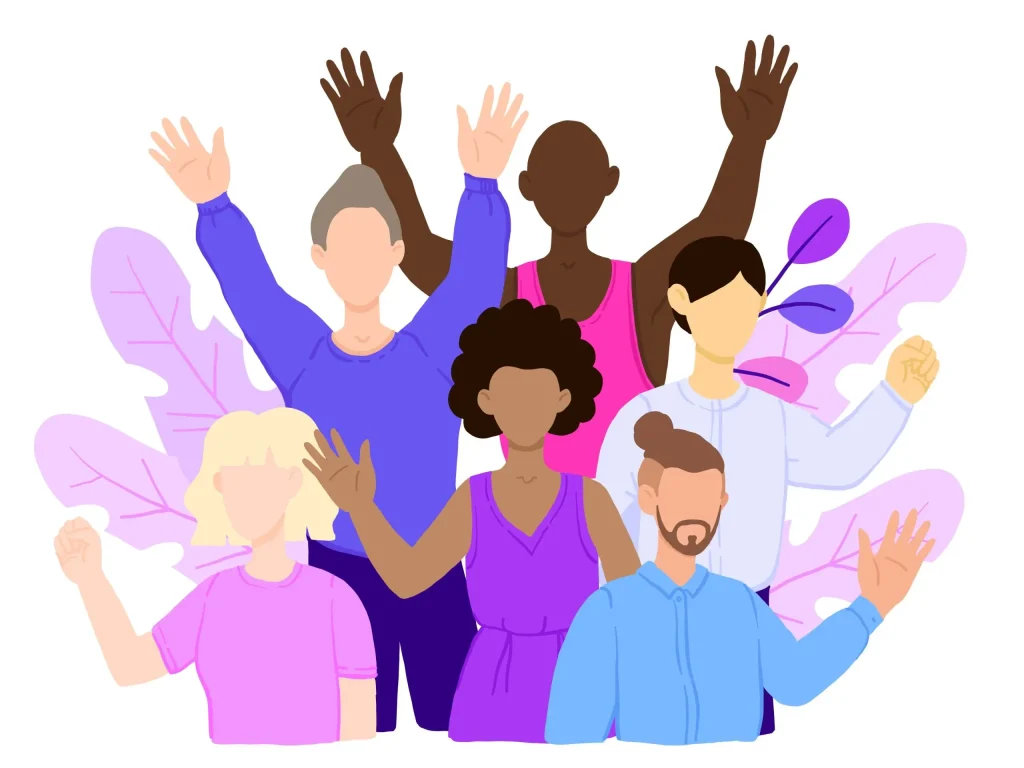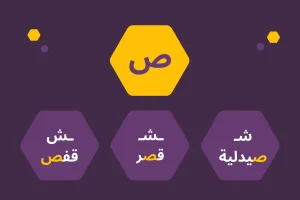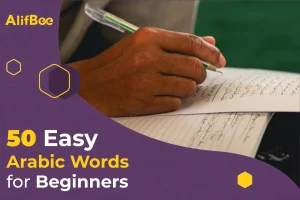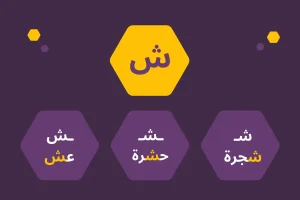
Hello! How are you?
Marhaban! Kayfa Haluk?
“How are you?” is one of the basic and most common questions asked in any language everyday. But how do we say How are you in Arabic? And what other essential Arabic greetings should a beginner in Arabic know about as they start learning Arabic?
One of the first steps to understanding a culture and its people is learning its language, and a crucial aspect of any language is knowing how to greet others. In Arabic, greetings extend beyond simple hellos. They reflect the intricate social norms and the warmth and friendliness of Arabic speakers.
Being able to properly greet and inquire about someone’s well-being in Arabic is more than a linguistic skill—it’s an open door to form genuine connections, be it in business, travel, or social contexts.
With these Arabic phrases, you can show respect and understanding towards Arabic speakers, enriching your interactions and experiences in the Arabic-speaking world.
So, let’s get started and explore some of the basic ways to greet people and ask how they are doing in Arabic.
We will start by looking at greeting questions that can start the conversation and then we will learn different ways to respond to these questions and continue the conversation.
Arabic Greeting Questions
First of all, even though what we will be learning below is greeting questions that mean How are you in Arabic, they are used as a greeting expression.
In other words, all of the questions we will look at can be used to say hello in Arabic and start the conversation.
Kayfa al-ḥāl
كَيْفَ الحَال؟
“كيف الحال؟” is a general way of saying How are you in Arabic. It’s a versatile phrase that can be used in any situation, from casual to formal. It’s a neutral and safe choice when you’re unsure of which phrase to use.
Kayfa ḥāluka?
كَيْفَ حَالُكَ؟
The second phrase كيف حالك؟ also translates to “How are you?”. It is very similar to the first phrase but is more commonly used in one-on-one conversations, adding a touch of personal connection.
Kayfa umūruka?
كَيْفَ أُمورُكَ؟
Translating to “How are your affairs?”, “كيف أمورك؟” is a slightly more personal way to ask about someone’s well-being. This phrase is best used in familiar settings, such as among friends and close colleagues.
Kayfa anta?
كَيْفَ أَنْتَ؟
“كيف أنت؟” directly translates to “How are you?”, similar to the first two phrases. However, it is used less frequently, often when the speaker wants to emphasize the person they are addressing.
Mā akhbāruk?
مَا أَخْبَارُك؟
The fifth phrase ما أخبارك؟ means “What’s up with you?” and is usually used in a casual, friendly context. It expresses genuine interest in the other person’s life or recent activities.
Hal kullu shayʼin ʻalá mā yurām?
هَلْ كُلُّ شَيْءٍ عَلَى مَا يُرَام؟
“هل كل شيءٍ على ما يُرام؟” translates to “Is everything okay?”. It is used when there is concern for the other person’s well-being. Use this when you suspect that someone might be going through a challenging time.
Hal anta bikhayr?
هَلْ أَنْتَ بِخَيْر؟
“هل كل شيءٍ على ما يُرام؟” translates to “Is everything okay?”. It is used when there is concern for the other person’s well-being. Use this when you suspect that someone might be going through a challenging time.
Kayfa alḥālu wālmālu wālʻiyāl?
كَيْفَ الحَالُ والمَالُ وَالعِيال؟
The phrase number 8 كيف الحال والمال والعيال؟ translates as “How’s life, money, and family?”. This question reflects a deep interest in the person’s life, and it’s used among close friends and family members.
Kayfa ṣiḥḥatuka al-ān?
كَيْفَ صِحَّتُكَ الآن؟
“كيف صحّتك الآن؟” means “How’s your health now?”. This phrase is used when you’re aware that the person has been facing health issues and you want to show concern for their recovery.
Kayfa tasīru ḥayātuka?
كَيْفَ تَسِيْرُ حَيَاتُكَ؟
“كيف صحّتك الآن؟” means “How’s your health now?”. This phrase is used when you’re aware that the person has been facing health issues and you want to show concern for their recovery.
Arabic Greetings with Suitable Responses
Now let’s learn the suitable Arabic phrases and expressions to respond to Arabic greeting questions we learned.
How are you?
كيف الحال؟
كيف حالك؟
كيف أمورك؟
كيف أنت؟
What’s up with you?
ما أخبارك؟
You can respond with one of the following Arabic phrases:
I’m good, thanks.
أنا بخيرٍ، شكرًا
I am blessed, thank God.
أنا في نعمةٍ والحمدلله
Is everything okay?
هل كل شيءٍ على ما يُرام؟
Are you alright?
هل أنت بخيرٍ؟
How’s life, money, and family?
كيف الحالُ والمالُ والعيالُ؟
You can respond with one of the following Arabic phrases:
Good, thanks.
بخير، شكرًا
Everything is okay.
كل شيءٍ على ما يُرام
How’s your health now?
كيف صحّتك الآن؟
How’s your life going?
كيف حياتك؟
For these two greeting questions, you can respond with the following Arabic phrases:
I’m doing pretty well.
أنا في أحسنِ حالٍ
Final word
Arabic, like many languages, is rich and varied. Even a simple phrase like “How are you?” has many forms that carry different connotations and are suitable for different situations.
By using these Arabic greeting questions and phrases to greet others, you can add depth to your conversations and better connect with Arabic speakers.
So, next time you have the opportunity, try using one of these phrases and see the positive impact it has on your communication.
Now that you have learned different ways to greet people, take this Quiz to further practice these phrases and questions. We have carefully designed this quiz to help you consolidate the information you learned in this blog
Also, make sure to explore our Planner, which features a rich 30-page worksheet accompanied by over 200 practical exercises and activities. This all-inclusive planner serves as an effective tool to reinforce your acquired knowledge and propel your learning journey with ample practice opportunities.
And read about essential Arabic phrases and expressions in our Everyday Arabic page.




